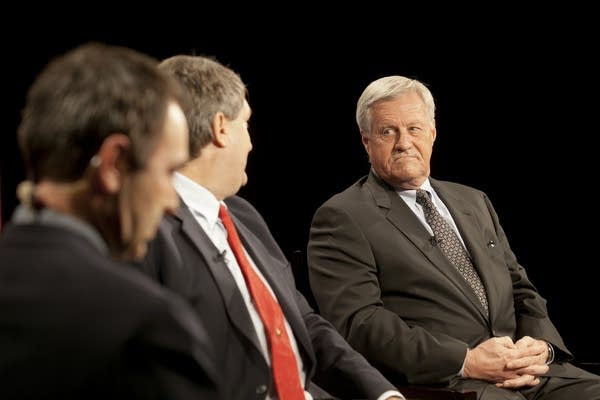For Collin Peterson, campaigns are no longer a cakewalk

Rep. Collin Peterson defended his record during a debate with Republican challenger Torrey Westrom at Prairie Public Television in Fargo, N.D.
Dave Arntson / For MPR News
Go Deeper.
Create an account or log in to save stories.
Like this?
Thanks for liking this story! We have added it to a list of your favorite stories.


